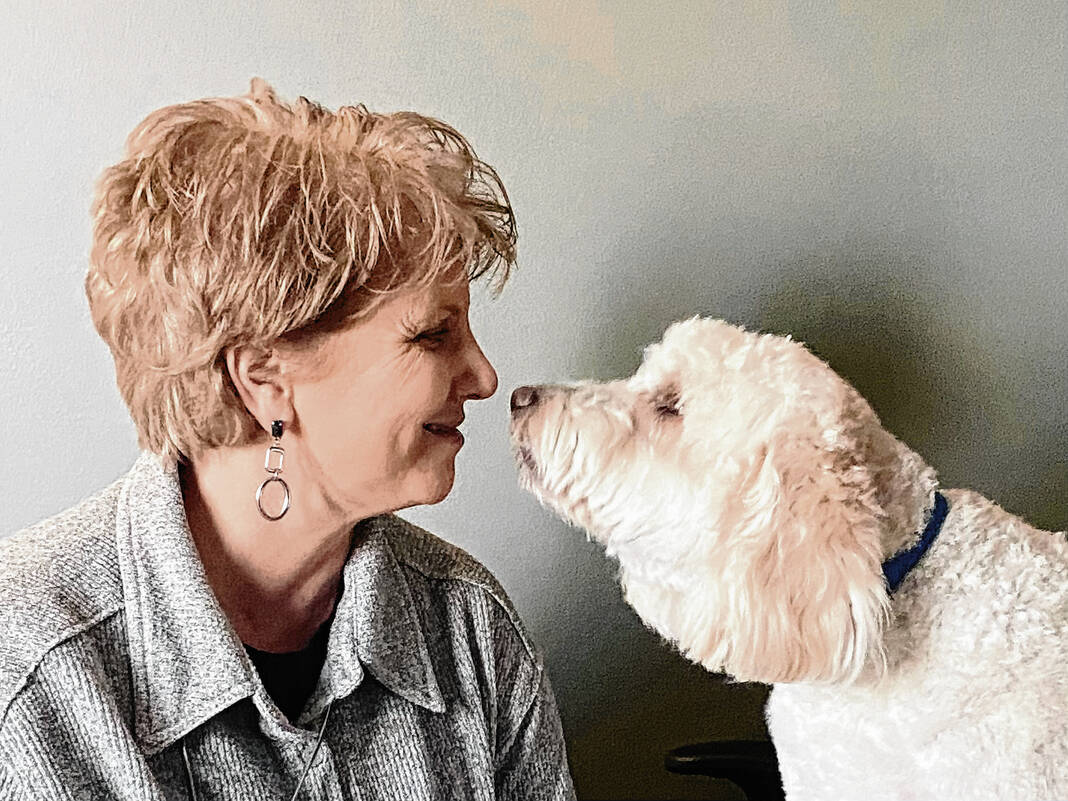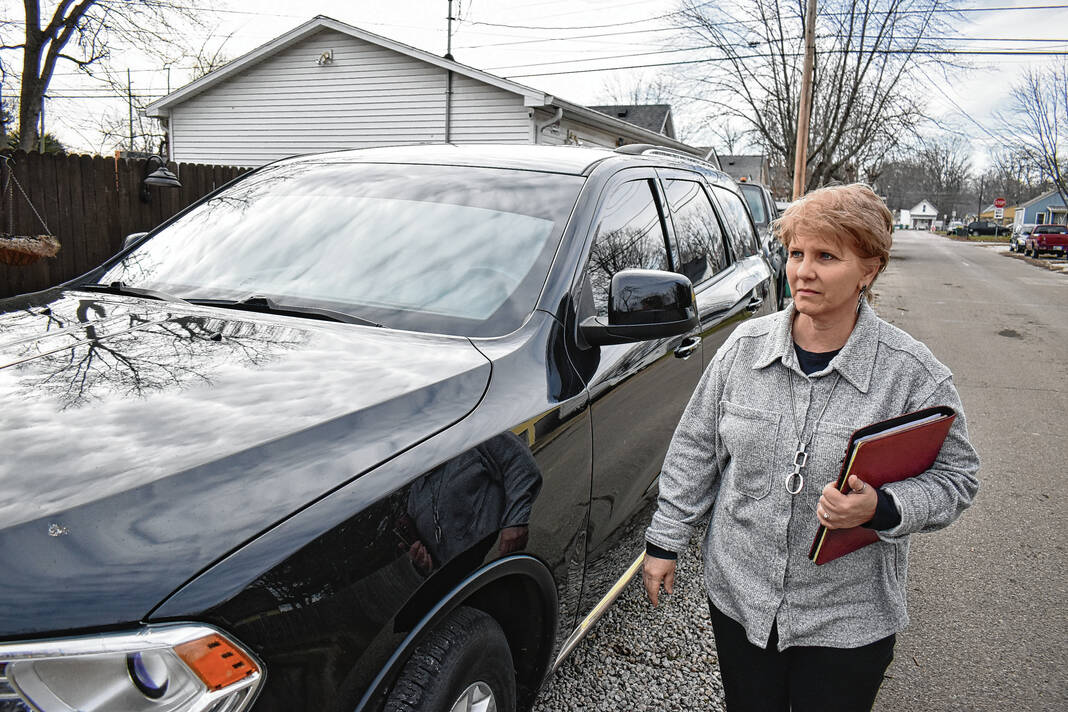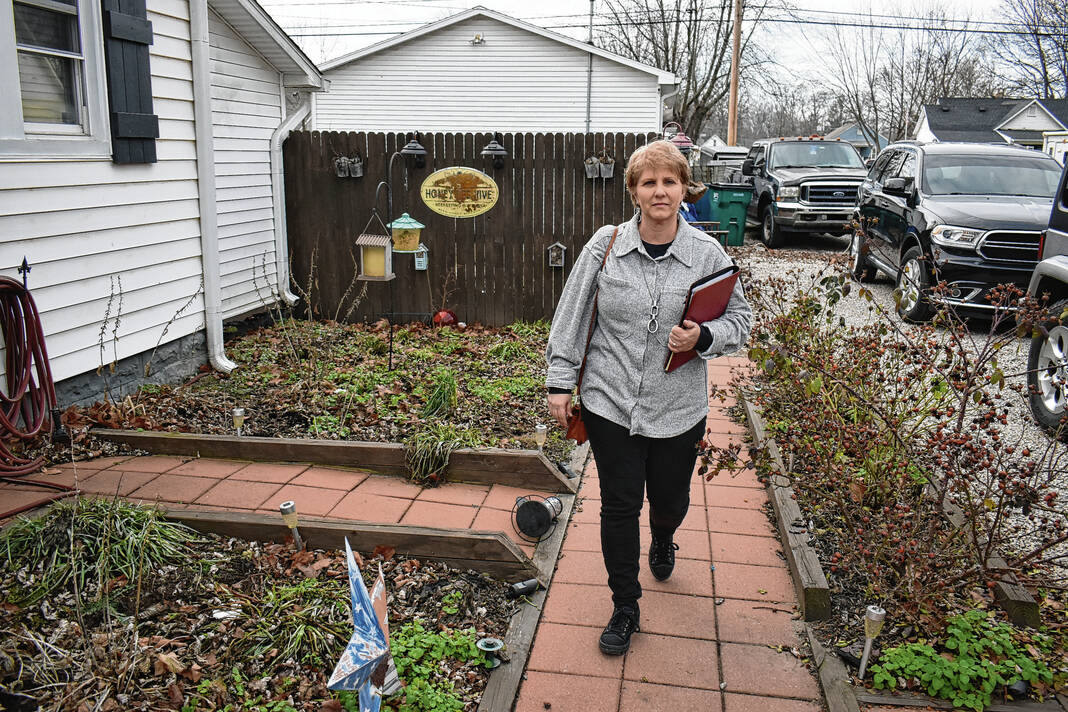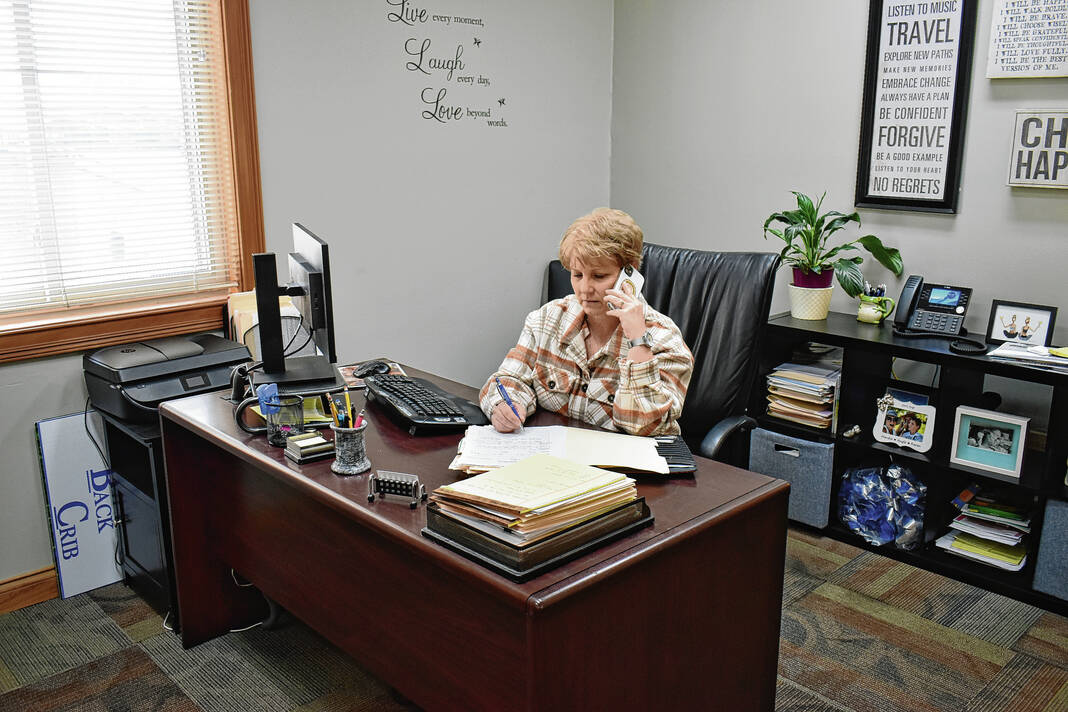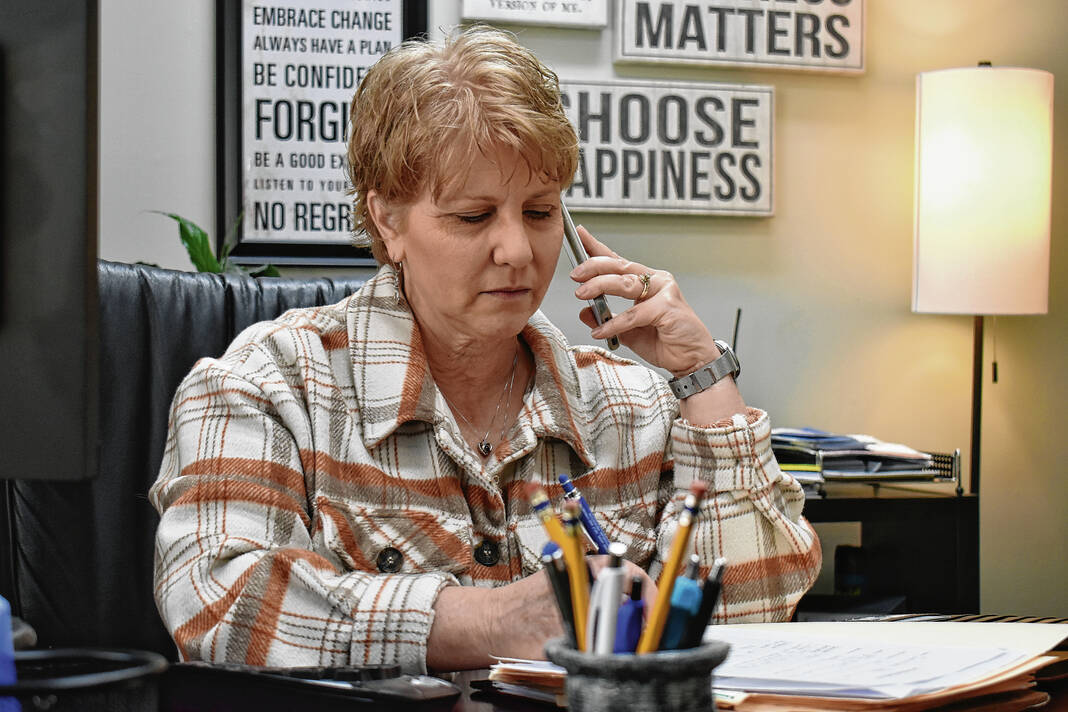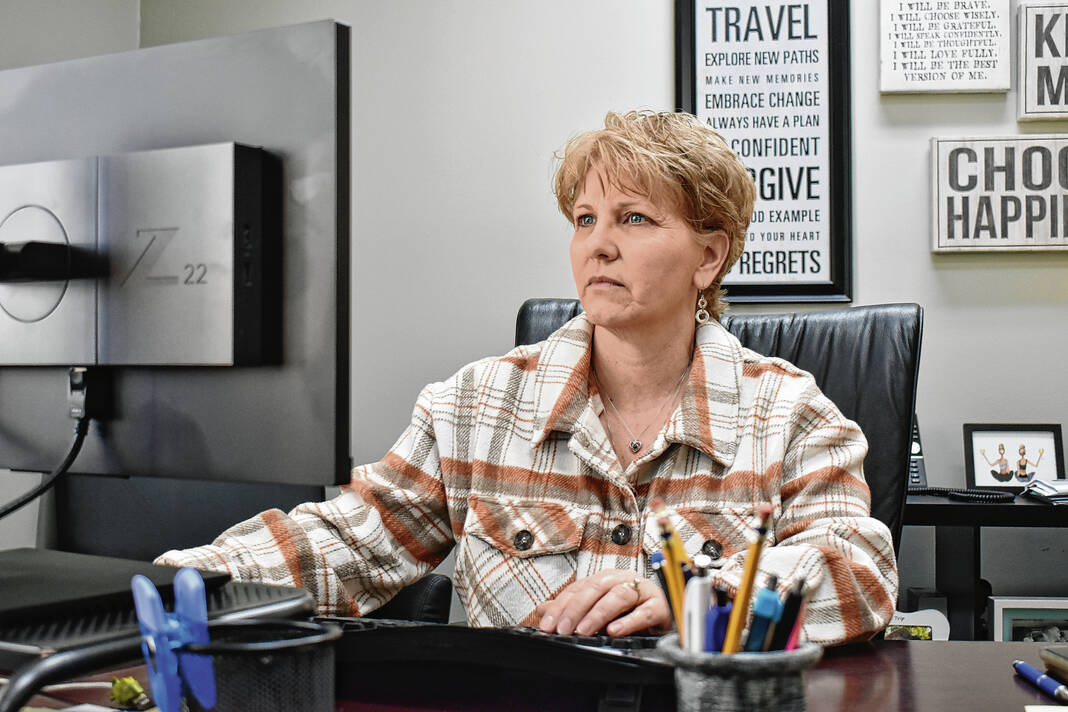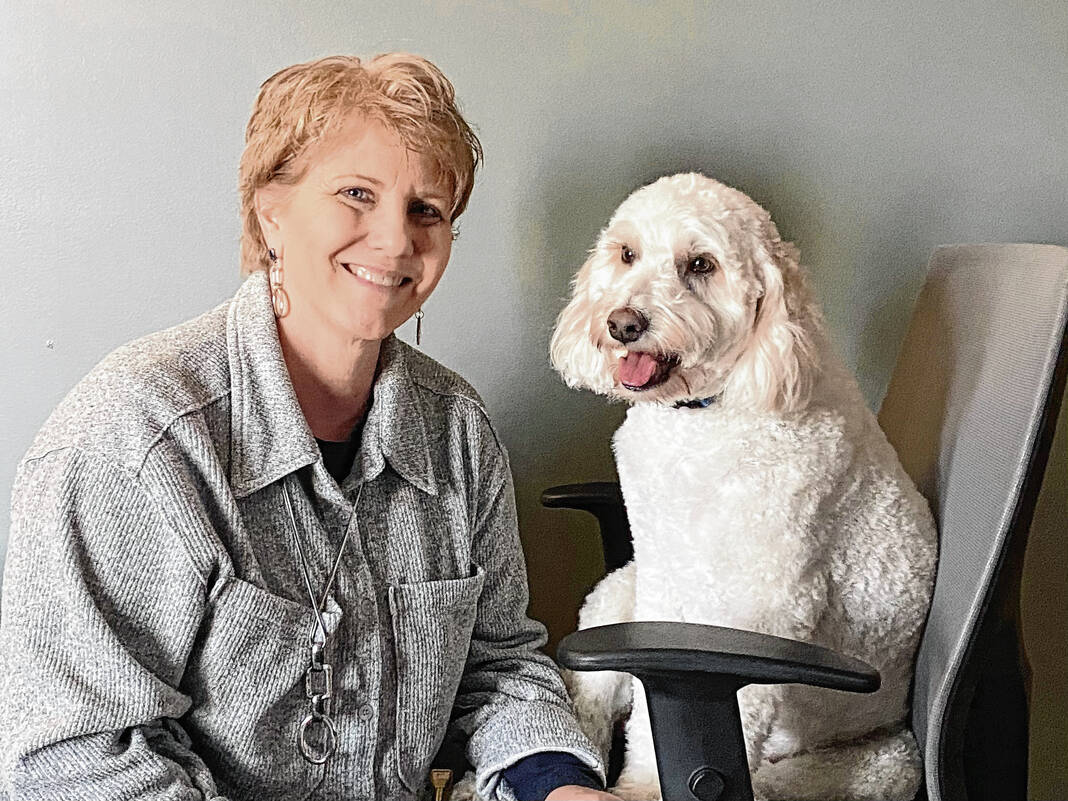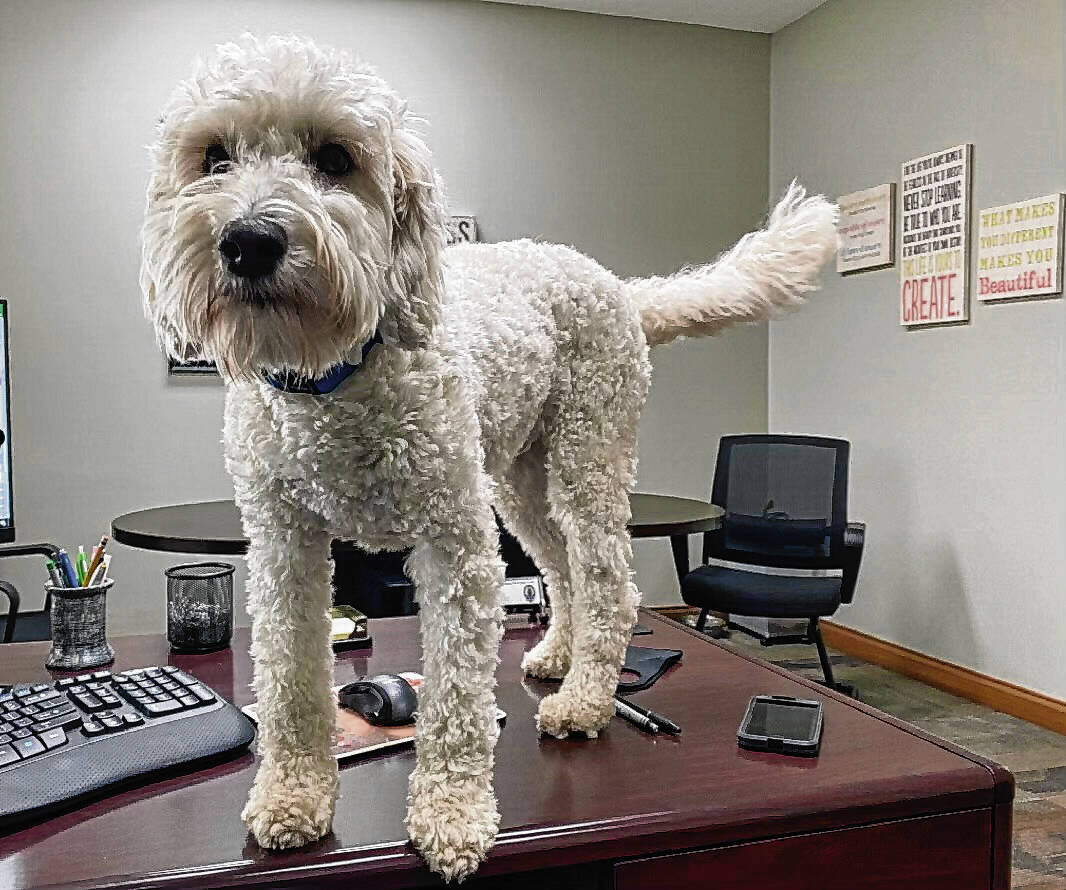Two years ago, the Franklin Police Department hired its first licensed crisis intervention officer to help deal with mental health issues.
Since then the number of referrals Karen Shaffer — who prefers to be called a social worker — has made to other providers has continually increased. In her role, she meets with people in crisis situations, runaways, homeless people and other people in need of assistance.
She first learned of the job from her old friend, Franklin Police Chief Kirby Cochran in late 2019 or early 2020. She had worked with the Department of Child Services for 13 years, and she and Cochran frequently worked together at that time, she said.
Shaffer was able to develop the program from the ground up. Franklin police is one of only six agencies in the state to have a social worker embedded within the department, and remains the only agency in Johnson County to do so, she said.
“Nobody really knew what it was supposed to be,” Shaffer said. “We all had an idea of what we wanted to see, but nobody really knew how to get there and what to do with it.”
The job
Since Shaffer first joined the department on Dec. 7, 2020, she has made over 300 referrals to other agencies to help those with mental health, juvenile and family issues. Other referrals are typically for suicide, homelessness and drugs, according to data provided by the Franklin Police Department.
Shaffer does not typically go out to homes in the moment, though there have been a few times she’s been called to a scene by police officers.
“Most of the time, it’s after the fact or the officer will call me while they’re there and I’ll schedule an appointment with that person for the very next day or later that day, depending on what time the call comes in,” she said.
There also is no typical call, she said. She’s responded to calls involving elderly people with dementia, parents who have children who are out of control and people with drug or mental health issues to name a few.
Therapy K-9
Along with adding a social worker, Franklin police also added a therapy K-9: Benny, a mini-Australian labradoodle mix.
Benny does not usually go out on calls with Shaffer, who shares handler duties with Cochran.
Sometimes Shaffer does cold calls to a home, and people may not like dogs or have pets that wouldn’t like Benny. There are also times where she could be going from place to place, and having Benny with her could be a distraction, Shaffer said.
Benny still has time to shine. He’s been especially helpful for people who may have difficulty opening up about their issues, Shaffer said.
For example, Shaffer sees an individual who has difficulty opening up and having a conversation with her. The individual loves dogs though, and would they feed Benny treats or play with him, they open up and speak with Shaffer, she said.
“He’s been invaluable with some of those clients that otherwise I would have never been able to have conversations with,” she said.
Benny makes appearances at some public relations events with Cochran. He also helps comfort officers during stressful situations, Cochran said.
“When that dog comes in this office, everybody is yelling for him,” he said. “Most folks want to see him, and it does get stressful in here at times. I think he’s doing the absolute best that we could ask for him to do.”
Data shows benefits
Reaction to the program, along with Benny, has been great. Some officers were initially hesitant, but as the program has gone on, this hesitation has faded away, Shaffer said.
For the 60% of individuals who engaged with Shaffer during the first year of the program, police calls to those individuals have decreased by about 75%, she said.
“That’s 75% of calls that officers didn’t have to go on that they could address other things, and then 75% of calls the individuals in the community were able to have other alternatives other than law enforcement,” she said.
The decrease in runs is a great bonus, but it’s not always about that, Cochran said. It’s about keeping officers, firefighters, neighbors and individuals safe, he said.
“Not only are you recognizing the problem, but you’re also able to provide some tools and keep officers safe, neighbors safe,” Cochran said.
Data also has consistently shown that they’ve been able to get people help and treatment and eliminate the need for police to respond, Shaffer said.
“They don’t want to take these folks to jail,” she said. “They’re not in need of the criminal justice system, but they go time and time again and (officers) have no resolution for them.”
Whenever officers do send her a referral, they want updates on how the individual is doing. Giving them that resolution is huge, Shaffer said.
“They deal with a lot of stuff in this job,” she said. “I think being able to give them some resolution has been huge in all of the things that they deal with on a day-to-day basis.”
The Village
A key part of what enables Shaffer to do her job well is what she has dubbed “The Village”: providers and organizations she calls on to help those in need.
“We call it The Village because it really does take a village in this field,” Shaffer said.
The Village began as a small monthly meeting before expanding to 25 organizations from across Central Indiana. Organizations include the Bowen Center, Franklin Needham Union Township Trustee, Franklin Community Schools, Grace United Methodist Church, Johnson Memorial Health, the United Way and Valle Vista Health System.
Shaffer usually gets a release from the individual before referring them to one of these organizations. She then calls the organization to ask for updates on how they are doing.
“There’s a few that I can see myself always keeping in touch with,” she said.
For 2023, The Village’s meetings are planned to be more solution-focused. Right now, the number one problem is housing, and the group is going to brainstorm ideas on how to solve the problem.
“I can’t build new housing,” she said. “I don’t have those kinds of funds, but how do we do things differently?”
Expansion possible
In the future, Shaffer would like to see the crisis intervention position expand by adding another social worker to help with the workload. A lot more could be done if there was another person, she said.
Right now, she only receives calls from others and does not go out actively searching for referrals. Some of this could be eliminated, however, if social workers were able to get involved earlier, maybe by going through police runs each morning, Shaffer said.
“I can almost guarantee that there are two or three calls every single day that are in the pre-crisis stage that if we put that early intervention in, they would never rise to that level,” Shaffer said.
One of Cochran’s favorite parts of the program is that it isn’t a competition. It’s a partnership, and this partnership is no different than the community partnership he frequently advocates for, he said.
“We don’t want a program with a dog. Nobody wants that,” Cochran said. “We want a program with a dog and a therapist that sees results in the public, and that’s what we got.”
HOW TO CONTACT
For those interested in learning more about the Franklin Police Department’s social worker program, or to make a referral for someone in need, contact social worker Karen Shaffer. Her contact information is below:
FPD Administration: 317-736-3670
Cell: 317-560-1214
Email: [email protected]


